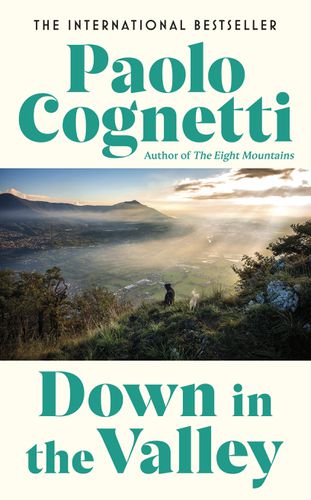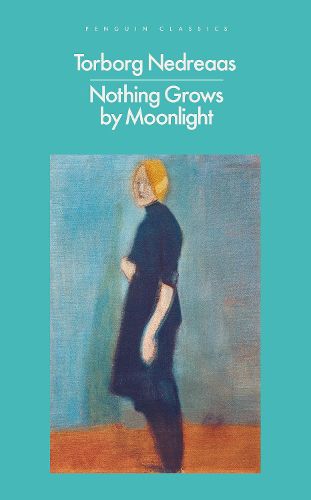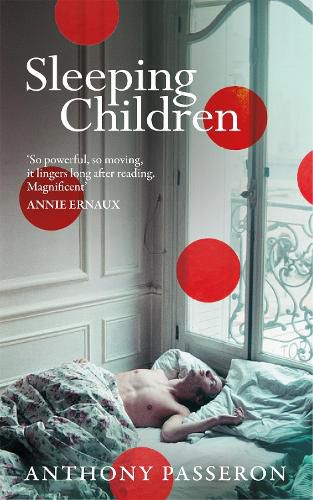This month we're reading fiction translated from: Japanese, Italian, Dutch, Norwegian and French
The Passengers on the Hankyu Line
Hiro Arikawa, translated from Japanese by Allison Markin Powell
Trundling through the scenic countryside of Kyoto and Osaka is the Hankyu line, a burgundy-coloured electric train that has been carrying its commuters to their destinations for decades.
Over the course of a single journey in springtime, and the return journey six months later just as the leaves begin to fall: a young man meets the woman who happens to take out the last copy of the library book he was about to borrow; an angry wedding guest dresses in a white gown to upstage the bride; a university student leaves home for the first time; a twenty-something finally grows the courage to walk away from an abusive partner; a widow learns independence, as she and her granddaughter meet their new dog.
As the seasons change and the landscapes change, passengers jostle and connect, as this gentle timeless train carries each one forward towards the person they intend to become.
Down in the Valley
Paolo Cognetti, translated from Italian by Stash Luczkiw
Alfredo and Luigi grew up in Valsesia, in northern Italy. Their father planted trees for them when they were born – for Luigi, a larch, which looks towards the sun and waves in the wind; for Alfredo, a fir, which flourishes only in the shade.
Since their father's untimely death, all the two brothers have in common is their heavy drinking and the old family home, high up on the mountain. Luigi would like to buy Alfredo out, move from down in the valley to start a new life up in the heights with Elisabetta and the baby girl they are expecting. But in this remote and wild landscape, one drink too many, one wrong word, can turn dogs into wolves.
Available from 24 June. Pre-order here.
The Remembered Soldier
Anjet Daanje, translated from Dutch by David McKay
Flanders 1922. After serving as a soldier in the Great War, Noon Merckem has lost his memory and lives in a psychiatric asylum. Countless women, responding to a newspaper ad, visit him there in the hope of finding their spouse who vanished in battle. One day a woman, Julienne, appears and recognises Noon as her husband, the photographer Amand Coppens, and takes him home against medical advice. But their miraculous reunion doesn't turn out the way that Julienne wants her envious friends to believe. Only gradually do the two grow close, and Amand's biography is pieced together on the basis of Julienne's stories about him. But how can he be certain that she's telling the truth?
In The Remembered Soldier, Anjet Daanje immerses us in the psyche of a war-traumatised man who has lost his identity. When Amand comes to doubt Julienne's word, the reader is caught up in a riveting spiral of confusion that only the greatest works of literature can achieve.
Nothing Grows by Moonlight
Torborg Nedreaas, translated from Norwegian by Bibbi Lee
In the blue dusk of a spring evening, a man is drawn to a lonely, beautiful stranger across a station platform. She follows him home, and over one heady night of wine and cigarettes, recounts to him the devastating story of her life …
First published in 1947, Nothing Grows by Moonlight tells the haunting tale of one woman's soul-shattering love affair. When an obsessive passion for her high school teacher consumes a small-town seventeen-year-old, her life spirals out of control, giving way to pregnancy, poverty and alienation. Here, darkness and light converge, and unrequited love blooms against the shadows of societal injustices, as she fights for autonomy – over her life, her mind and her body.
Sleeping Children
Anthony Passeron, translated from French by Frank Wynne
It is 1981. As a wave of puzzling medical cases sweeps across the US, a Parisian doctor is presented with a rare case of a disease long thought to be eradicated. It marks the beginning of a race on both sides of the Atlantic to make sense of a deadly virus that will define a generation.
Miles away in rural France, Anthony Passeron’s family are dealing with a crisis of their own. Their small village is gripped by another epidemic – heroin addiction. Anthony’s uncle Désiré, once the pride of the family, has become one of its many ‘sleeping children’. Often found unconscious on street corners, he is a stranger to his family. As Désiré’s life descends into chaos, the thunder of the AIDS crisis grows closer. These two stories – one intimate, one global – are about to collide.
Read our staff review here.
Make Me Famous
Maud Ventura, translated from French by Gretchen Schmid
Ever since she was a child, Cléo, the French-American daughter of two academics, has had only one obsession: becoming a famous singer. Over the years, to everyone’s surprise but her own, she overcomes every obstacle and becomes a global superstar with millions of dollars, countless awards, and several Los Angeles villas to her name. But as any celebrity will tell you, getting to the top is one thing; staying there is another.
Now thirty-three years old, Cléo is taking her first real vacation in years, on a remote island with no one else in sight. With the never-ending spin cycle of her life finally on pause and no paparazzi peeking out from behind the coconut palms, she can work on her fourth album in peace. Except that with so much time to think, she can’t help but ruminate on her past – including how, just six months earlier, things started to go very, very wrong …








